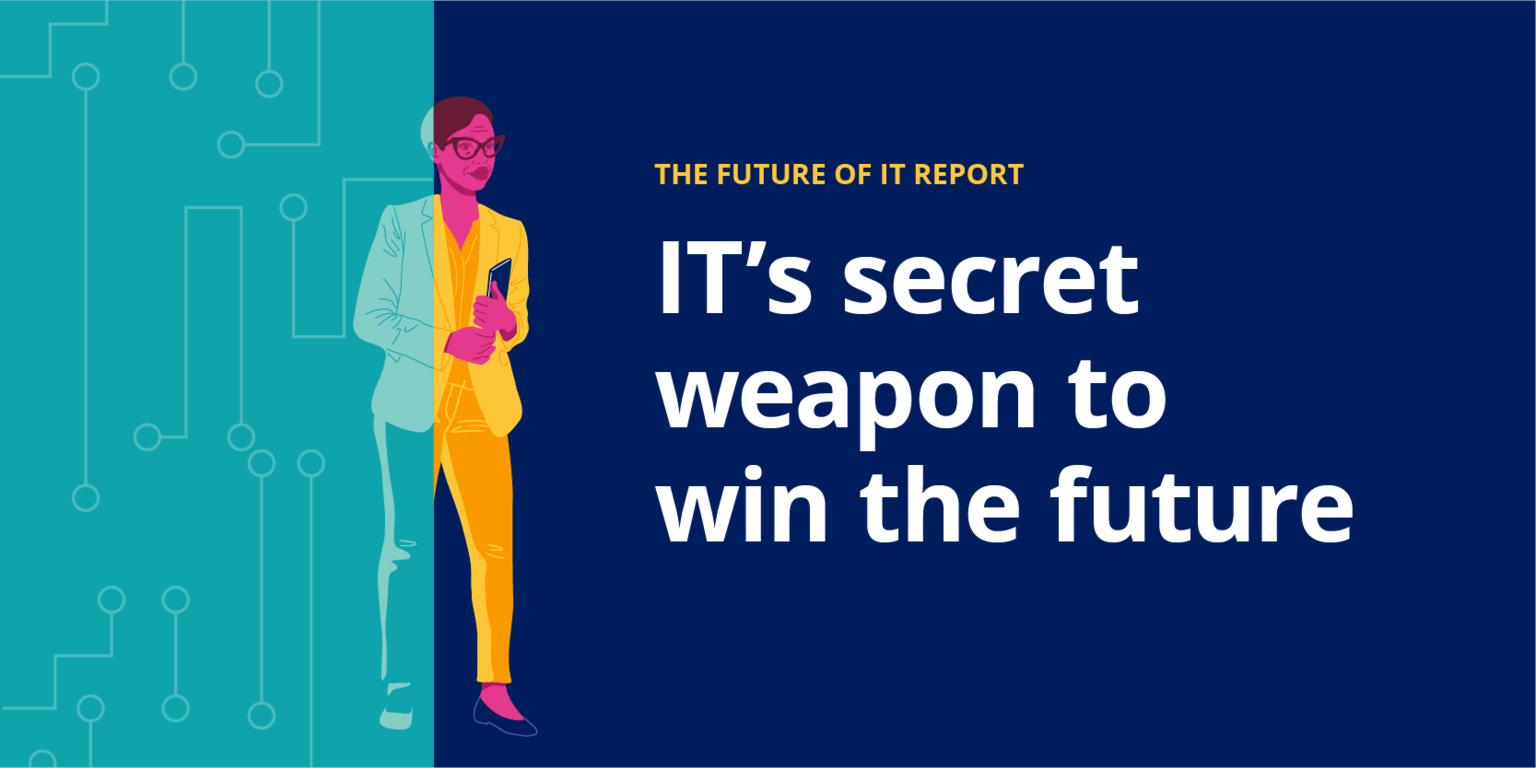The continuous evolution of technology paired with a global pandemic have drastically changed the way we work by bringing the future closer than ever before. Businesses around the world are scrambling to keep up and better understand how modernization will impact them. Automation is streamlining manual processes, paving the way for and affording the growth of new role types and skillsets. One role that’s undergoing a huge transformation is the IT professional.
IT is often seen as the supporting, behind-the-scenes group that makes sure everything across the organization is running properly. They strive to ensure that all technical equipment and software are working, that global teams can virtually connect at any time of the day or night, and that all company data is securely protected. However, the future of the IT position will step out from the background and take its place on stage to support and lead business transformation objectives and to collaborate directly with teams across the entire enterprise.
IT will become a key player across the organization
Research results from our Future of IT report show major changes in this role that will ripple across business departments.
“32% of respondents said that digital transformation has allowed them to cooperate more with other functions in a transformational way. 38% said cooperation with other functions had a big impact.”
Here are five major changes coming to IT:
- IT will look and feel different
Technology is changing the way we all work on a day-to-day basis. And this certainly holds true for IT. Standard administrative tasks are no longer a time-consuming part of the job because automation has streamlined these processes, enabling IT members to spend less time redoing, recoding, and rearchitecting their work. This is changing the IT landscape to becoming a more creative and collaborative role with more involvement in business strategies and operations. - IT executives will become more prevalent within the c-suite
This evolution of the IT role will impact all aspects of work from c-suite to management. As businesses continue to implement digital solutions to streamline processes and modernize practices, CIOs and CTOs will play bigger roles in the c-suite to ensure that these modernization initiatives succeed.

IT’s secret weapon to win the future
Discover what it will take in this report – everything from building agility to creating more inclusive hiring practices, from honing people skills to relearning executive skills.
- Expect to see more IT professionals integrating and collaborating across various business functions and teams
As technology and business strategy become more aligned, IT members will be more integrated across the business structure to collaborate with different departments and teams on digital transformation efforts. Automation solutions are making tedious and manual processes obsolete, enabling IT members to work with more teams than ever before.
“Digital transformation has allowed 68% of IT leaders to disperse responsibility to other functions and decentralize responsibility by delegating it downward.”
- The IT role will be more fulfilling
Since automation is streamlining manual and technical processes, IT members can focus on building up other skillsets that are more creative, dynamic, and social. As IT members begin collaborating more across different business teams, they will have more space to be creative with solutions and projects. They will also tap into leadership and problem-solving skills while other technical skills, such as coding, become less critical. - Diversity, equity, and inclusion will be critical
As businesses continue to modernize, IT professionals will have the opportunity to play a bigger role in business-wide operations and building a more diverse workforce. This will impact the hiring process because organizations will look to hire people with strong problem-solving and interpersonal skills rather than the more traditionally technical skills such as coding. Diversity and inclusion will hit a new level of importance to ensure improved data accuracy, provide unbiased recommendations, and reduce barriers to entry for marginalized groups.
Big changes, big rewards
This is a very exciting time for IT professionals around the world. Automation is creating new opportunities to work across an organization and problem-solve at a higher level. IT is growing beyond coding and technical support and though it’s a big shift, it shows how much digital solutions are changing and improving organizations across industries and the world.

